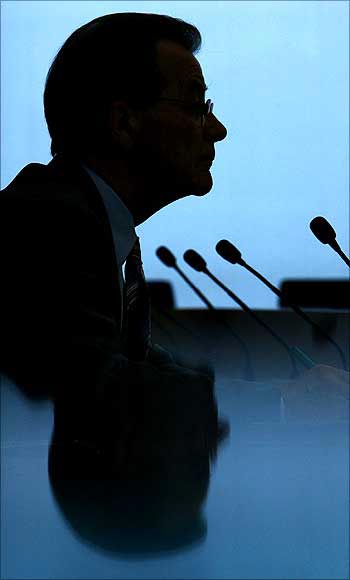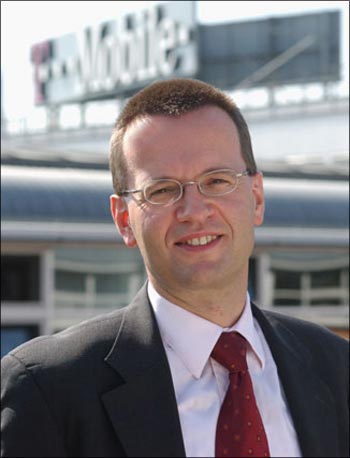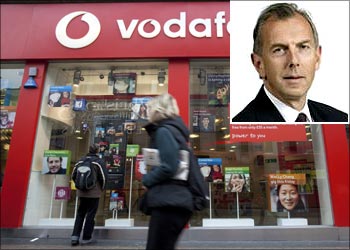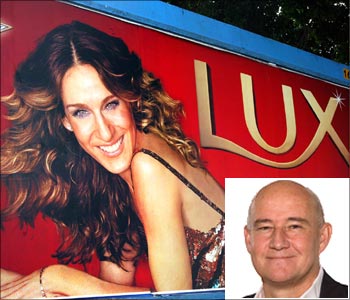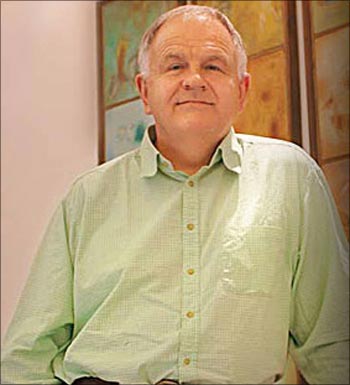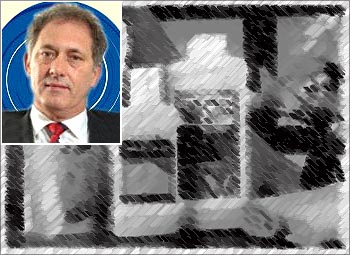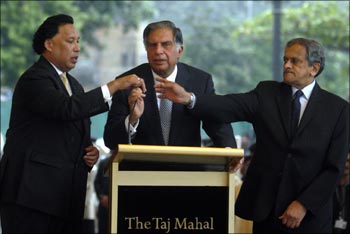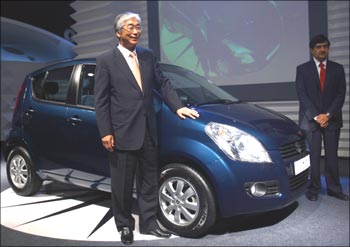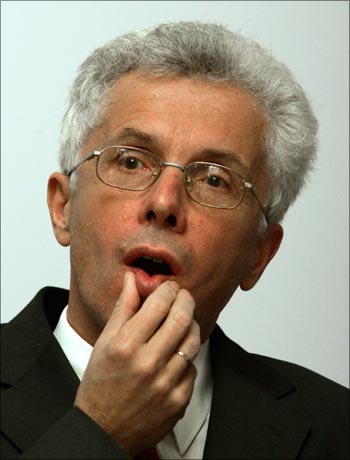 | « Back to article | Print this article |
Meet the expats who guide Indian firms
As corporate India diversifies further and goes global, the job market in the country is getting more attractive: not just for the local candidates, but also for expatriates.
Modernising or organising any sector requires specialised skills and, while there is no doubt that India is a great talent hub, there is generally a need to hire expatriate talent from developing and other emerging countries and use their skills for complex dealings and better execution.
Sectors such as pharmaceuticals, IT, hospitality, aviation, telecom, FMCG are growing like never before and expanding their reach in the global arena. In a scenario like this, the number of foreigners seeking jobs in India is rising and corporate India is willing to offer them positions not just on the medium or senior level but also at the top management level.
Meanwhile, a similar trend has been noticed in other countries. Foreign countries are welcoming Indian talent in areas where they lack skills. PepsiCo boss Indra Nooyi is one great example.
Last week, Ratan Tata, head of Tata Group -- India's largest industrial conglomerate -- said his successor could be a foreigner.
"It would certainly be easier if that candidate were an Indian national. But now that 65 per cent of our revenues come from overseas, it could also be an expatriate sitting in that position with justification now that we are a company that has global reach and global presence," Ratan Tata had said.
Expatriate talent is the need of the hour as more and more companies have international clients and a major chunk of revenue comes from the overseas. More such professionals could be needed in other specialist fields like mining, retail, engineering, technology and manufacturing going forward. Take a look at some of the global faces that adorn Indian businesses. . .
Click on NEXT to read further.
Meet the expats who guide Indian firms
At the beginning of this year, telecom major Bharti Airtel roped in T-Mobile's CTO Joachim Horn as director, technology and network. This was a period when the company's plans to expand in to media and Internet were fresh and it was also looking to expand internationally.
The appointment was Airtel's yet another push to rope in global talent for key senior positions as it was striving to build a 'world-class' organisation.
Horn, a computer science graduate from Wedel University in Gemany, joined the group with strong domain knowledge of technology trends in the wireless business, having worked with international companies like Siemens and T-Mobile at top positions.
In 2006, Airtel hired Canada-based Carol Borghesi as director, customer service delivery. Borghesi came with 26 years' of experience in customer service, including a senior position with British Telecom.
Airtel's Enterprise Services division is headed by an American. David Nishball, who is a president there, leads all business-to-business activities, including wholesale carrier and corporate markets - both within India and globally.
Meet the expats who guide Indian firms
In February 2009, telecom giant Vodafone roped in Marten Pieters, then CEO of Africa's second-largest mobile operator Celtel International, to succeed Asim Ghosh, the then CEO of Vodafone Essar.
Marten holds a degree in Law from Groningen University in The Netherlands.
In 2007, the company appointed Andrew Davies as its India chief financial officer. Prior to this, Davies was CFO at Vodafone's operation in Turkey.
The move was sometime after the department of telecommunications notified its new guidelines, allowing the appointment of foreign nationals as CEOs and CFOs of Indian telecom companies.
Davies holds a BSc (Hons) Mathematics degree from the Imperial College of London.
Meet the expats who guide Indian firms
In 2005, India's largest fast moving consumer goods company, Hindustan Unilever Ltd, announced the transition from its national management committee to a new management committee and said Douglas Baillie, as the chief executive officer, will head the new committee.
The company's rationale behind the rejig was to have a single chain of command through the CEO to ensure the benefit of synergies across businesses.
It was after about 50 years, the company was appointing an expat as its CEO. Stephen Turner was appointed Lever's first expat chairman in the 1950s.
Baillie joined Unilever South Africa in 1978 and held several positions at different locations within the group till he was moved to head the India operations.
Meet the expats who guide Indian firms
In 1995, Ranbaxy invited British national and a pharmacy expert, Brian Tempest to join India's leading pharmaceuticals company.
Tempest tookover as CEO and managing director of Ranbaxy in 2004, after D S Brar completed his term on the same position and expressed his wish to not renew his appointment.
He held several positions -- including president, managing director, chief mentor and executive vice chairman and non-executive director -- at Ranbaxy for 14 years till 2008.
Tempest has a PhD in Chemistry from Lancaster University in the UK. He is also an Honorary Professor of the Management School at Lancaster University.
Meet the expats who guide Indian firms
Direct selling company Modicare hired New-York based Richard Johnson as a strategic advisor and three other expats at the top level when it was preparing for the overseas.
Chris Bolsover was appointed chief operating officer, while well-known trainers, David Hooker and Colin Hoo were hired to retain, train, and motivate Modicare's distributor base.
The move bought in a different experience and perspective to the business and Bolsover's international marketing experience helped the company to move at a fast pace in the competitive direct selling market.
Meet the expats who guide Indian firms
The Indian hotel industry strategically hires its managers from the overseas. One of the key reasons to hire an expat is that their client base is mostly international, and this kind of hiring puts the consumer at ease too.
Also, global candidates bring with them a lot of international exposure and excellence in the hospitality industry.
Hotel Leela's Mumbai manager, Matthias Kann, is an American. Leela Goa's general manager, Andreas Herbst, is an Australian and Leela Bangalore is headed by German Eric Swanson.
The Imperial Hotel in New Delhi is headed by Frenchman Pierre Jochem.
Taj Hotels' managing director and chief executive officer, Raymond Bickson, is an American.
Meet the expats who guide Indian firms
Nakanishi played a significant role during the formative years of Maruti, which started as a joint venture between the government and Suzuki in the early 1980s and rolled out its first car in December 1983.
His face came to be recognised only towards the end of the 1990s when the two partners waged a bruising battle for control of the joint venture that also saw them spar in court.
In his long years with Suzuki, Nakanishi served as the group's key guy in markets like China, Indonesia, Hungary, Pakistan and East Asia - markets whose contours are similar to India's.
Also, In 2008, Bajaj Auto-- India's leading two-wheeler manufacturer-- appointed Tomotaka Ishikawa from Yamaha Motor India as its full-time advisor.
Meet the expats who guide Indian firms
Some expats who had a short stint...
Tata Teleservices, a Tata Group company, once had an expat CEO. Darryl Green joined the company in 2005 and left after a 2-year stint. Green was the only expat holding the CEO's post in any of the Indian telecom companies.
Wolfgang Prock-Schauer resigned from Jet Airways as its CEO in October this year to join British Midland Plc as its CEO. Nikos Kardassis, who headed the airline's US operations, has taken over from him as acting CEO.
Bert Paterson served as Aviva Life Insurance Company India Ltd's managing director and CEO till Citibank executive T R Ramachandran took over in 2008.
Peter Baker served as Dabur Retail's CEO, till the company decided to replace him with an Indian as the industry was hit by a slowdown.
